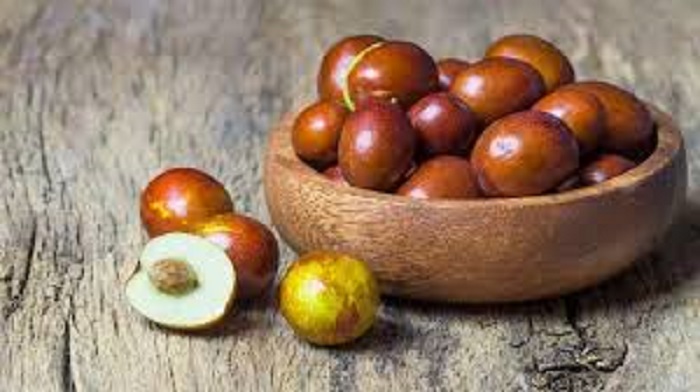HEALTH
Žižole: A Complete Guide to Its Role and Benefits

Žižole, also known as jujube or Chinese date (Ziziphus jujuba), is a small, reddish-brown fruit with a long history in traditional medicine, culinary traditions, and modern wellness. For centuries, it has been cherished in Asia and the Mediterranean for its health-promoting properties and versatility in both sweet and savory dishes.
This article explores the role of žižole in history, health, and modern life. By the end, you’ll understand not only its unique properties but also how to incorporate it into your lifestyle to enjoy its full range of benefits.
The Origins and Cultural Role of Žižole
A Fruit with Ancient Roots
-
Native to China, cultivated for over 4,000 years.
-
Spread to the Mediterranean via trade routes.
-
Used in traditional Chinese medicine for digestion, sleep, and immunity.
Cultural Significance
-
In Mediterranean regions, žižole is often enjoyed fresh or as jam.
-
In Asia, it appears in teas, soups, and tonics.
-
Symbol of good health and longevity in folklore.
Nutritional Profile of Žižole
Žižole may be small, but it’s nutrient-rich.
Key Nutrients:
-
Vitamin C: Strengthens the immune system.
-
Antioxidants: Protect cells from oxidative stress.
-
Fiber: Supports digestion.
- Potassium: Regulates blood pressure.
Also Read: The Hybrid Revolution: 5 Hybrid Publishers Transforming American Publishing
Health Benefits of Žižole
1. Strengthening Immunity
The high vitamin C content makes žižole a natural defense booster.
2. Supporting Digestive Health
Its fiber aids bowel regularity and gut health.
3. Promoting Restful Sleep
In Chinese medicine, žižole is a natural remedy for insomnia and anxiety.
4. Anti-Inflammatory and Antioxidant Effects
Rich in flavonoids and polysaccharides, which fight inflammation.
Practical Ways to Use Žižole
Culinary Uses
-
Eat fresh like an apple.
-
Dry into a chewy, date-like snack.
-
Brew into tea for relaxation.
-
Use in jams, syrups, or desserts.
Modern Wellness Applications
-
Added to dietary supplements.
-
Used in herbal medicine tonics.
-
Featured in skincare products due to antioxidants.
Lists of Benefits & Uses
Top 5 Reasons to Add Žižole to Your Diet
-
Boosts immunity.
-
Improves digestion.
-
Enhances skin health.
-
Promotes better sleep.
-
Provides natural energy.
Simple Žižole Tips
-
Buy fresh: Look for firm, smooth fruit.
-
Store properly: Keep fresh žižole in the fridge for up to 2 weeks.
-
Dry at home: Sun-dry or use a dehydrator.
-
Add to smoothies: Blend dried žižole for sweetness.
-
Pair with nuts: A healthy, energy-packed snack.
Žižole in the Modern Era
Global Superfood Status
Thanks to research-backed benefits, žižole is gaining recognition in the West as a “superfruit.”
Economic Impact
-
Rising demand in health food markets.
-
Increasingly grown in Mediterranean regions and exported worldwide.
Sustainability Role
Žižole trees are drought-resistant, making them vital in sustainable farming.
Personal Experience with Žižole
Growing up in a Mediterranean household, my grandmother always kept a jar of dried žižole in the pantry. Whenever I caught a cold, she brewed a warm tea with the fruit, honey, and lemon. It wasn’t just a remedy—it was comfort in a cup. This experience reflects why žižole isn’t just food but also a cultural bridge between tradition and wellness.
Key Takeaways
-
Žižole (jujube) is a nutrient-rich fruit with centuries of traditional use.
-
It supports immunity, digestion, sleep, and skin health.
-
Modern applications include supplements, teas, and skincare.
-
Its drought resistance makes it environmentally significant.
Conclusion
Žižole is more than a fruit—it’s a timeless superfood that bridges tradition and modern wellness. From cultural symbolism to proven health benefits, it plays a significant role in today’s health-conscious world.
FAQs
What does žižole taste like?
It tastes crisp and sweet when fresh, similar to an apple, and becomes chewy and date-like when dried.
Can I eat žižole every day?
Yes, in moderation. Fresh or dried žižole can be a daily part of a healthy diet.
Are there any side effects?
Generally safe, but excessive consumption may cause digestive discomfort in sensitive individuals.
Is žižole good for children?
Yes, it’s a natural, nutrient-rich fruit suitable for kids, though dried pieces should be cut small to avoid choking.
How is žižole used in skincare?
Extracts are used in creams and oils for their antioxidant and anti-aging benefits.
Can diabetics eat žižole?
Fresh žižole has less sugar than dried, so moderation is important for people with diabetes.
Where can I buy žižole?
Available in Asian supermarkets, health food stores, or online in dried form.

-

 ENTERTAINMENT3 months ago
ENTERTAINMENT3 months agoBuilding Community Through Compassion: The Social Mission Behind Big Yard’s Music
-

 GUIDE3 months ago
GUIDE3 months agoBenefits of Air Casters for Safe and Efficient Material Handling
-

 HOME IMPROVEMENT2 months ago
HOME IMPROVEMENT2 months agoWall Panels: Transforming Spaces with Style and Functionality
-

 GUIDE2 months ago
GUIDE2 months agoBuild to Suit Opportunities Offer Turnkey Locations for Retail Business